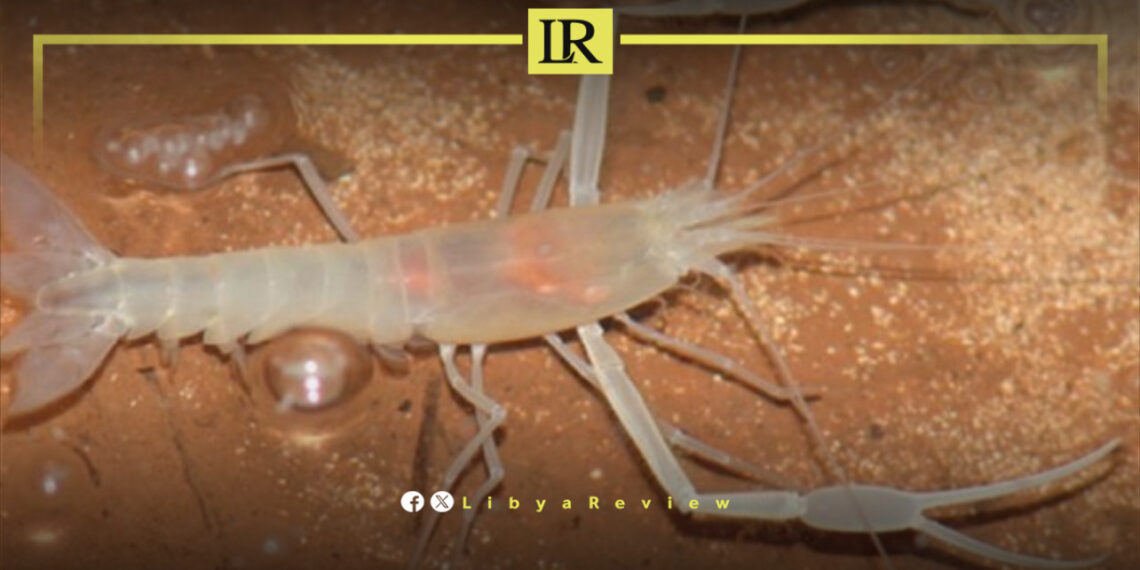On Saturday, researchers at Benghazi University officially announced the discovery of a rare blind cave shrimp in the karstic groundwater of Benghazi, confirming its existence more than a century after it was first discovered in 1920 by French scientist Louis Barisi.
This finding is a major step in understanding Libya’s subterranean biodiversity and highlights the environmental significance of the region’s cave ecosystems.
The study was conducted by a team of scientists from the Departments of Earth Sciences and Zoology at Benghazi University’s Faculty of Science, in collaboration with the Epileo Karst Research Center in Italy. It marks the first official scientific documentation of this species in Libya, providing new insights into the ecology and hydrogeology of the area.
For the first time, researchers have confirmed that the shrimp exists in the cave waters of Al-Kuweifiya, expanding its known habitat by 9 kilometers east of Benghazi. This discovery suggests possible hydrological connections between underground water systems in the Benghazi Plain, which could have wider implications for water resource management and conservation efforts in Libya.
The finding is part of an ongoing scientific collaboration between Benghazi University and the Epileo Karst Research Center, which aims to study Libya’s cave systems and unique subterranean ecosystems. This partnership is crucial for understanding the region’s biodiversity and developing conservation strategies to protect fragile underground habitats.
The study’s findings were published in the prestigious journal Subterranean Biology, which is ranked in the first quartile (Q1) of the Scopus database and indexed by Web of Science. This publication highlights the global significance of the discovery and places Libya on the map for subterranean biodiversity research.
Scientists emphasize that protecting Libya’s underground ecosystems is essential, as they harbor unique and endangered species that are still being studied. This discovery strengthens the case for greater conservation efforts to preserve the country’s rare aquatic life and fragile cave environments before they face further threats from human activity and environmental changes.


